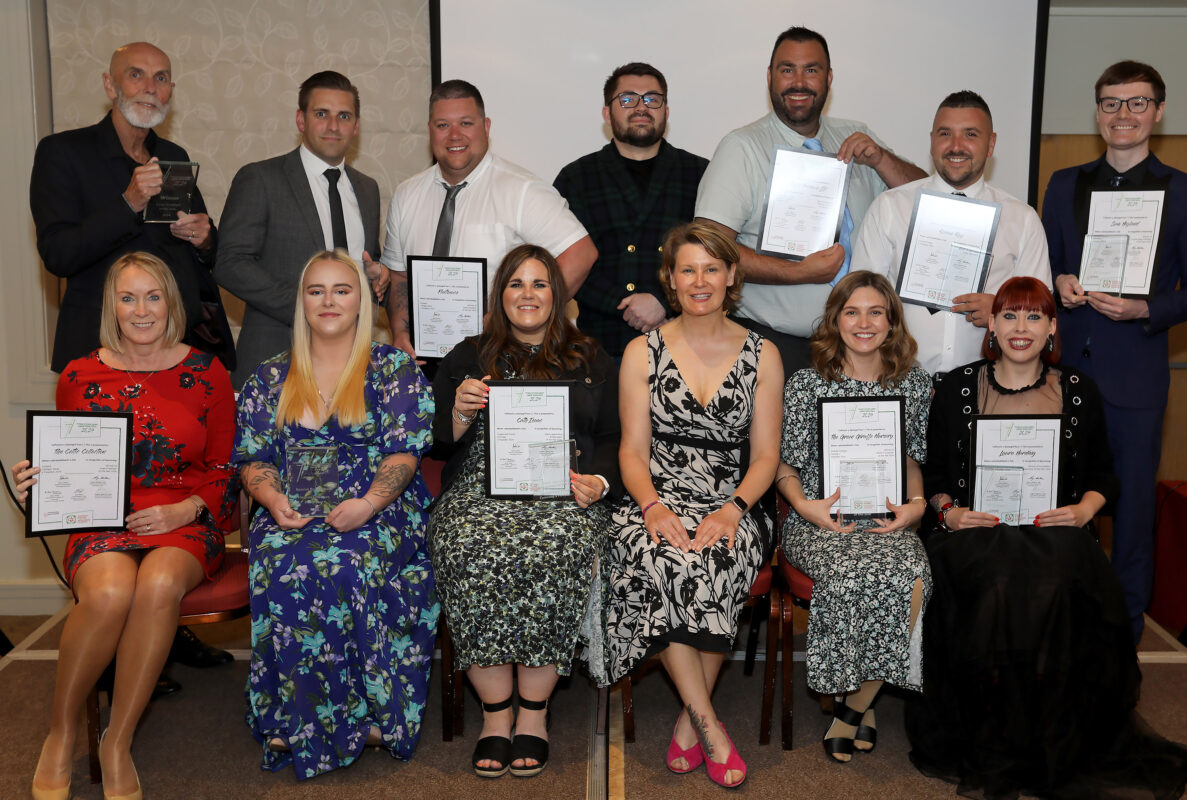The importance of ‘touch’ v ‘technology’ in digital war for early talent #FutureofEmployment

Young people still prefer a high level of human ‘touch’ when applying for jobs, believing human recruiters to be better at identifying talent versus technology, according to a new survey published today by The 5% Club and Schneider Electric UK.
Furthermore, the survey by the training and skills campaign group of 1,000 young people and their employers, highlights a disparity between the most popular forms of digital recruitment tools utilised by employers and those favoured by young people themselves.
The rise of machine-learning and predictive analytics has become an efficient way for many companies to find and recruit early talent, improving workflow, removing bias and managing high volumes.
However, according to The 5% Club, companies that fail to embrace the balance between human ‘touch’ points and the right forms of technology, risk finding themselves on the losing side of an increasingly digital war for talent, with young people turning to companies who do succeed in getting the balance (and tech) right.
The 5% Club and Schneider Electric UK survey shows the following:
-
Over half (52%) of young people don’t believe that technology does a better job at identifying talent compared to human recruiters, with only 1% feeling more comfortable working with technology over people during the recruitment process;
-
Over half of young people (58%) would like to experience a 25% tech-enabled v 75% human interaction during recruitment, with a further third preferring 50% tech-enabled v 50% human;
-
Whilst young people are positive about the use of cognitive gaming in recruitment today, this tool is only used by 9% of employers surveyed;
-
Similarly, experiences of online knowledge assessments and on-demand videos (where candidates provide a response to set questions) are rated as positive by the young people surveyed, but only put into practice by a third of employers;
-
67% of employers believe young people expect to see technology being used in the recruitment process, yet results show that only 18% of young people feel that technology gave them an advantage in the recruitment process;
-
85% of employers agree that the rising use of technology helps to manage high volumes of applications and 76% said technology helps workflow.
Lady Cobham CBE, Director General of The 5% Club explains:
“Whilst technology is, of course, an inherent part of today’s recruitment process in order to streamline and manage huge recruitment workflows, its use must be tailored where possible to fit with what young people find most appealing. Human ‘touch’ points are still incredibly important for the young, with traditional forms of recruitment such as assessment days and face to face interviews favoured as an opportunity to build a relationship and see the company ‘brand’ in person. Where digital recruitment tools are used, The 5% Club’s research shows that companies should be considering greater use of tools favoured by the young, such as cognitive gaming and online knowledge assessments.
“In a candidate driven market and with many competitors vying for talent from the same pool, companies must consider the recruitment process as part of their employer brand. Part of this means understanding how young people want to be treated during the recruitment process, the tools used to assess potential and the candidate ‘journey’ – often the recruit’s first experience of the company. Getting the balance right between human ‘touch’ v ‘technology’ is vital if businesses are going to attract the best early talent, like apprentices, and ultimately fill roles, imperative in the current skills crisis.”
Peter Hogg, Talent Acquisition & Mobility Manager, Schneider Electric UK and Ireland, comments:
“Digital recruitment technology has a lot of potential to improve experiences of candidates and those tasked with assessing early talent. Such technologies boost productivity, reduce the volume of repetitive tasks and allow talent acquisition teams to focus on where they add the most value. Yet, the findings of the survey suggest that we should not be complacent, revealing a widening rift between the needs of recruiters and young professionals.
“Recruiters consider the increased use of technology as part of the attraction, assessment and selection processes necessary to scale up and offer improved candidate experience. Young professionals do not trust in the technology’s ability to correctly and objectively assess their skill sets.
“Digital natives both professionally and personally still favour traditional recruitment practices, desiring as much as 75 percent of human interaction throughout the process. If we want to attract and retain top talent, we can’t ignore these findings. We must constantly strive to strike the right balance of technology and the ‘human touch’ throughout the process, offering the right guidance with the technology.”
Professor Sir Nigel Shadbolt, one of the UK’s foremost Artificial Intelligence (AI) experts and author of The Digital Ape: How to live (in peace) with Smart Machines says:
“AI brings real benefits to the workplace and recruitment processes as companies seek to secure the best talent. However the best AI programmes involve humans setting parameters for diversity, inclusion and fairness for example. The iGeneration is often alleged to be one which expects technology to replace human interaction, and so it is reassuring to discover, through The 5% Club’s survey, that this isn’t the case. Young people accept and celebrate AI in their lives, but they still expect, want, need and value human interaction and particularly during those important milestones in their life, like applying for a job. Getting that balance right, is a challenge that companies would do well to acknowledge and address.”
iGeneration: Digital Retargeting for New Age Talent
Today (Tuesday 19th March), The 5% Club and Schneider Electric UK welcome 60 of The 5% Club’s members to a conference to discuss how to get the balance right between ‘touch’ and ‘technology.’
The 5% Club is an employer-led organisation, which encourages employers to create as many ‘earn and learn’ opportunities as possible. The 5% Club has more than 360 members representing businesses across many sectors and sizes.
‘Earn and learn’ opportunities are structured training programmes which give people the chance to work towards a qualification whilst being paid, such as apprenticeships and degree apprenticeships. Members aspire to reach 5% of their workforce undertaking ‘earn and learn’ within five years of joining The 5% Club.
About The 5% Club:
-
The 5% Club works with UK employers and key influencers to inspire, educate and retain a growing body of people into ‘earn and learn’ placements in order to increase the number of apprentices, sponsored students and graduates. The goal of The 5% Club is to increase the employment and career prospects of today’s youth and equip the UK with the skilled workforce it needs to safeguard Britain’s economy. The 5% Club was launched in 2013.
-
Members sign The 5% Club charter. As a member of The 5% Club, employers state they are: Committed to helping the UK’s growth agenda and acknowledge the importance of developing people as both a business and social imperative; Playing their part in addressing youth unemployment and skills shortage; Pledging to work towards having a minimum 5% of their UK workforce enrolled on formalised apprentice, sponsored student and/or graduate development schemes within five years; Measuring and reporting on their progress annually against the above metric in their Corporate Social Responsibility section of the Annual Report and Accounts or equivalent document; Committed to encouraging other employers to participate in the campaign.
-
Membership of The 5% Club numbers more than 360 businesses from across a broad range of sectors as well as size of company, including large corporations as well as SMEs.
-
The Steering Board for The 5% Club is formed of the Chairman, Leo Quinn, Founder of The 5% Club and Group Chief Executive, Balfour Beatty as well as senior representatives from QinetiQ, MBDA, Network Rail, Kier, WorldSkills, JJ Churchill, Redrow, Lockheed Martin, Leonardo, Schneider Electric UK, Vinci and stakeholder representatives.
About Schneider Electric:
-
Schneider Electric is leading the Digital Transformation of Energy Management and Automation in Homes, Buildings, Data Centers, Infrastructure and Industries.
-
With global presence in over 100 countries, Schneider is the indisputable leader in Power Management – Medium Voltage, Low Voltage and Secure Power, and in Automation Systems. We provide integrated efficiency solutions, combining energy, automation and software.
-
In our global Ecosystem, we collaborate with the largest Partner, Integrator and Developer Community on our Open Platform to deliver real-time control and operational efficiency.
-
We believe that great people and partners make Schneider a great company and that our commitment to Innovation, Diversity and Sustainability ensures that Life Is On everywhere, for everyone and at every moment.











Responses